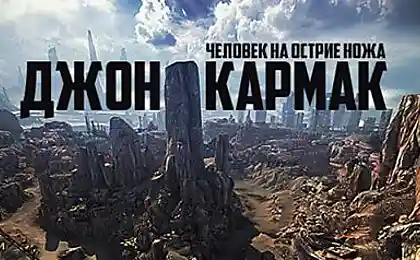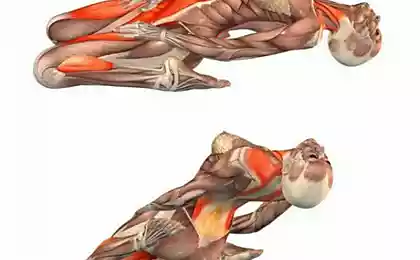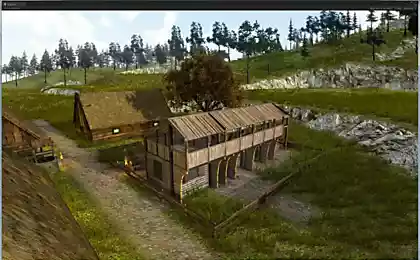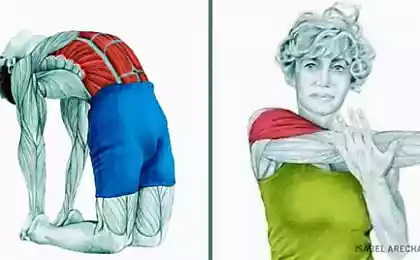1063
Forward to new heights of ignorance
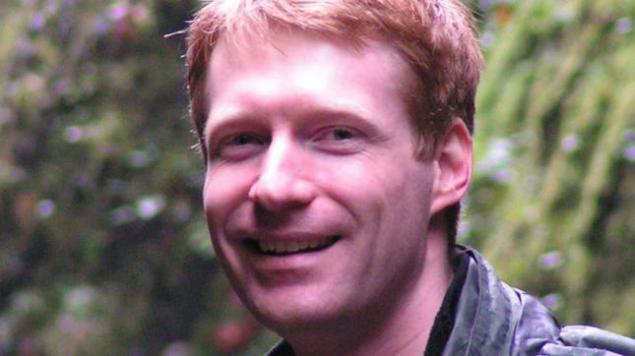
During the activity generated the Intel and brought to life a huge number of innovative ideas, beginning with pioneering technologies in processors and memory 60s - 70s and ending with promising developments today. The key to these achievements - a powerful and carefully cherished within the company culture and perception of the nomination of new ideas. Under the cut - an abridged translation of an interview with a senior architect units Intel Software and Services Group Ylian Saint-Hilaire on the difficult but fascinating life of developers pioneers faced by Intel poses a particular challenge - to generate and promote new ideas. < br />
Tell us about the process of generating ideas at Intel. How it is maintained and managed? B>
Intel supports the idea of generating a variety of ways, for example by training, held in the company. Developers have access to the University of Intel, where classes are held on various topics. Including on the theme of innovation. Encouraged the arrival of employees with their ideas and their statement. Another option - to listen carefully to people working on specific projects and encourage them to share their thoughts with others. The idea often easier to go from the bottom up, rather than vice versa. A man deeply immersed in the process, is able to deliver stunningly valuable idea, and besides him, nobody will generate. The main thing - to be able to notice it.
You are working in a group of pioneers. What is its task to Intel? B>
Pioneering work begins with the realization that it is important for the company. With this knowledge we identify a number of "building" process units and several options for their use based on the realities of the market. We study the existing design and create prototypes.
Take, for example, the topic of cloud computing and interaction with cell phones and mobile devices. What can we do in this area? We invent a dozen different prototypes; for example, the sharing of sensors phone and a PC or phone and cloud. We need to find the most user-friendly option. Something will burn that do not. One of the principles of our divisions: failure - this is normal. If the prototype did not reach the market, we come up with even more prototypes.
How did the pioneers to help the process of generating ideas and perceptions? B>
Every time you release a new series of prototypes, you learn something, especially if it reaches the actual user. One of the problems pioneers is that engineers are sitting as if everyone in the bladder and look at the world through its advanced development. If we sit inside and not go out, we'll never know what exactly wants a real user.
The prototype allows us to learn more about the technology. And if a lot of engineers working on different concepts next to each other, they are sure to find common ground. Further, the concepts give us the opportunity to interact with users outside of Intel and giving invaluable feedback: what they like and what does not.
What are some examples of products that have emerged through the process of generating ideas? B>
One of the big projects - MeshCentral, a website that allows people to remotely control their computers over a network. It's like a mail server, but instead of letters you manage your computers, regardless of their architecture, operating system or location. It's great that through this site we can test new technologies Intel, such as Intel Active Management Technology (Intel AMT), Intel Remote Wake Technology (Intel RWT) and Intel Privacy Technology (Intel IPT).
It is curious that the same technology is now being used to control the vending machines. It turns out that developed in our group technology remote control of computers from the cloud and used to control the sale of soda.
What is the role played by consumers in the promotion of ideas? And who else is involved in this process? B>
I'll start with the fact that two years ago, when we started to develop software for the management of the cloud, we did not anticipate that it will be used in vending machines. It happened because users and other stakeholders involved in the development.
At Intel, has a strong team working directly with users - it is also involved in the process. Meetings with users can be very much, so our team is very good is that they require. People on the ground, as well as commercial service we provide a wealth of information, their importance in the development cycle is very great idea.
Speaking of users, I want to note one feature regarding foreign languages. People who speak different languages, had different ideas. It is interesting to observe how the generation of ideas in various parts of the world, starting from the same point, come to completely different results. That is why it is important to them in several geographically separated areas.
Teams on the ground are involved in the generation of ideas, from a formal point of view? B>
With these commands, the situation is very informal. Formalize this part of the process is very dangerous, because technology is changing very quickly, and with them change the relationship between the participating: shifting markets, launching new products, etc. Therefore, the process is free and informal, but it takes place constantly.
The essence of the pioneering work consists in finding new applications for existing technologies or the creation of new conceptual products?
And then, and more. Very important is our task - to promote existing products on the market, increasing their customer value. If we take the Intel Active Management Technology and Intel Remote Wake Technology, add additional software, and thus rapidly increase the value of the resulting platform - this will be our success. On the other hand, for many years we have worked on sensors and contextual computing and here we have a large backlog. And continues to work on some of these ideas.
What aids do you use for the generation and promotion of ideas? B>
Our team has an internal Wiki, where people can start articles on any idea. Inside Intel regular competitions products and business ideas, one of those I won. In the case in the competition was attended by about 160 ideas, including the most insane. We can say that every 3-6 months in different parts of the company contests to identify good ideas.
How do you evaluate the ideas that emerge during the generation process? B>
This is not an easy task, it is sometimes difficult to connect with promising ideas coming from the teams on the ground. Sometimes the research team gets a great result, but engineers is difficult to understand where he came from. But usually we are able to connect with each other team in the field, users and researchers.
It so happens that the concept receives strong negative feedback from users. In this case, the manager is hard not to notice the negative feedback and make their own way.
The last question. Generation of ideas can be an exhilarating experience? B>
Yes of course. Of course, we love you success. Therefore, the motion on the road to nowhere, for many unattractive. But even in this case, you always learn something and invent something - and this is important. If you are of intense work, pick up new perspectives and try to get out of your bladder, your work will not be useless.
You need to constantly learn, to be able to ask the right questions. The more questions you ask, the denser approaching the new horizons of ignorance and thus more suitable for new ideas.
Source: habrahabr.ru/company/intel/blog/226507/
From June 26 in Ukraine will be officially sold iPhone
Kiev Shevchenko district purification from natural market - case moved!
